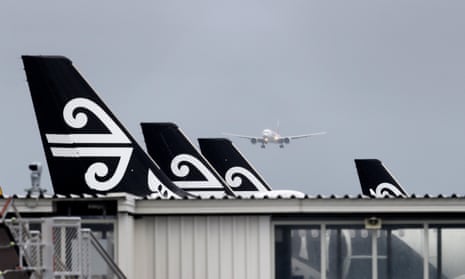New Zealand has announced it will reopen its borders to vaccinated visitors in the opening months of 2022, for the first time since prime minister Jacinda Ardern announced their snap closure in the first month of the Covid-19 pandemic. The country’s borders have been closed for more than a year and a half.
The border will initially open to New Zealand citizens and visa holders coming from Australia, then from the rest of the world, and finally to all other vaccinated visitors from the end of April. They will still have to self-isolate at home for a week, but will no longer have to pass through the country’s expensive and highly-space limited managed isolation facilities.
“Closing our border was one of the first steps we took to keep our country safe from Covid-19 and it will be one of the last things we do in terms of opening up,” Covid response minister Chris Hipkins said. “We do know that the international restrictions we have had around our border have been tough for many people.”
While that timeline is still some time off, news of a border reopening will come as a huge relief for many overseas New Zealanders who have been stranded for most of the last year, competing for a small number of spots in managed isolation.
For many, being locked out of the country has taken a substantial financial, emotional and psychological toll. Matt Hipkins, a New Zealander in Hong Kong and member of the Grounded Kiwis advocacy group, said he was overwhelmed by the announcement.
“Being apart from family, with no end in sight, this announcement has me in tears,” he said. “I wasn’t ready for the emotional release, the stress that has been built up over the past year. I’m not given to being overly emotional but this has taken me by surprise the depth of feeling of being ‘allowed’ back to my home and my family.”
Others took to social media to celebrate. “People in our office literally crying with tears of joy. Reuniting with family! I’ll see my mama again!” Pollyanne Peña tweeted. Peña said her mother had been based in Melbourne, and over the past year had missed milestones of her grandson growing up.
Others said the announcement was bittersweet. Mrid Narayan, an Aucklander based in Hong Kong, said she felt “a mixture of relief and betrayal”.
“As a proud overseas New Zealander I never thought I would be subjected to a lottery to win the ‘privilege’… to return to my home,” she said.
Speaking to reporters, Chris Hipkins defended the government’s decision not to reopen the borders before Christmas. “There continues to be a global pandemic with cases surging in Europe and other parts of the world, so we do need to be very careful when reopening the border.”
“Some people and businesses want us to start to open up before Christmas, and that’s understandable, but others want us to be more cautious. We acknowledge it’s been tough but the end of heavily restricted travel is now in sight,” Hipkins said.
The border will open in stages. Hipkins said that fully vaccinated New Zealanders can travel to New Zealand from Australia without staying in managed isolation from Monday 17 January. They can come from all other countries from Monday 14 February 2022. After that, fully vaccinated people, including international tourists, will be able to travel to New Zealand from the end of April. Countries classed as “very high risk” will be excepted from that – at this stage, only Papua New Guinea sits under that designation.
Hipkins said that managed isolation would still be present for the foreseeable future. “We will eventually reach a point where people will be able to move much more freely across the border and those periods of self isolation won’t be required. We’re not at that point yet.”
